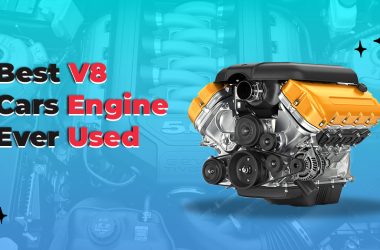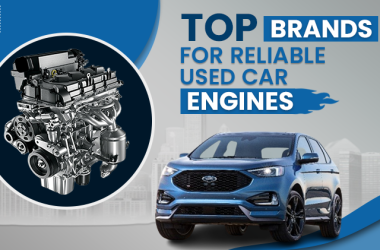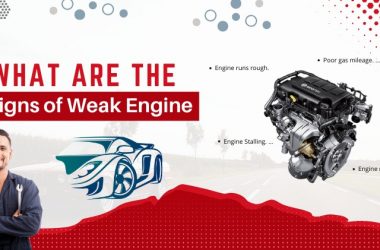Replacing an engine is a major undertaking that may be pricey, so it’s vital to understand when you might need to replace your engine and what factors influence your decision. While there is no hard and fast rule for when an engine should be replaced, there are several factors to consider when analysing the condition of your engine and determining whether or not a replacement is necessary.
It is crucial to note, however, that engine mileage is only one element to consider. Additional elements, like as driving conditions, maintenance history, and repair quality, can all have an impact on an engine’s longevity. Engines that are regularly driven in stop-and-go traffic or exposed to extreme weather conditions, for example, may wear out faster than engines that are usually operated on highways in temperate areas.
Another thing to think about are the symptoms and signs of engine wear or damage. If you notice any of the following symptoms, it could mean that your engine is nearing the end of its life and has to be replaced:
- Engine knocking or tapping: This could be a sign of worn bearings, which could lead to engine failure.
- High oil consumption: If your engine is consuming a lot of oil, it could be a symptom that it is worn out and needs to be replaced.
- Loss of power or performance: If your engine isn’t working as well as it used to, this could be an indication that it’s worn out and needs to be replaced.
- Overheating: An engine that frequently overheats or runs hot may indicate a faulty water pump or other internal components.
- Blue or white smoke from the exhaust: This could be the result of oil burning or coolant leaking into the combustion chamber, both of which can cause engine damage over time.
If you see any of these symptoms, you should get your engine inspected by a trained mechanic to establish the origin of the problem and assess the engine’s condition. Repairs or maintenance may be sufficient in some circumstances to extend the engine’s lifespan. In some situations, though, a replacement engine may be required.
There are various aspects to consider when choosing a replacement engine, including the cost of the replacement engine, the cost of installation, and the overall worth of the vehicle. In some circumstances, replacing the engine rather than purchasing a new car may be more cost-effective, especially if the vehicle is in good shape and has minimal miles.
It should be noted that engine replacement is a complicated and time-consuming process that should only be undertaken by a certified mechanic or engine specialist. Typically, the process include removing the old engine, installing the replacement engine, and performing any necessary changes to ensure that the new engine is compatible with the vehicle’s gearbox and other systems.
Suggestion: Everything you Need to Know About Used Car Engines
In conclusion, the mileage at which an engine should be changed is decided by a number of criteria, including engine type, vehicle make and model, engine maintenance history, and symptoms and signs of engine wear or damage.
hile there is no hard and fast rule for when an engine should be replaced, it is vital to have it inspected by a skilled mechanic and make an informed decision based on the engine’s health, replacement cost, and overall vehicle worth.






